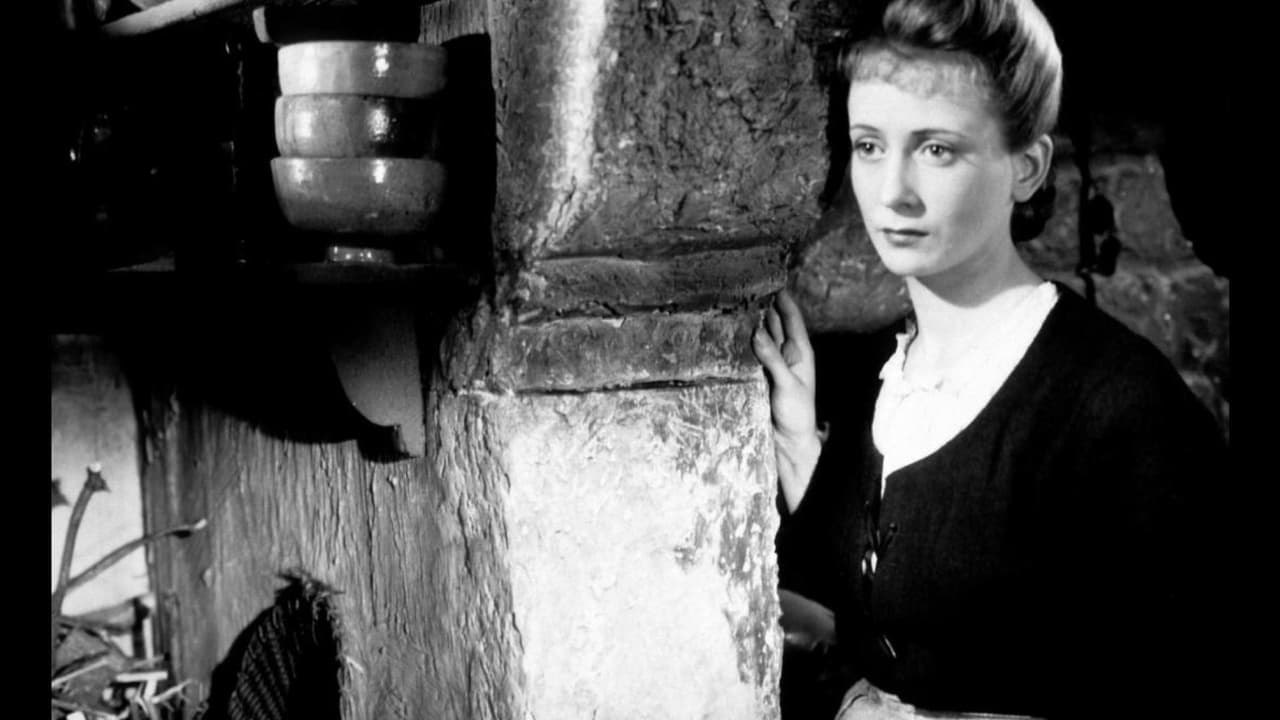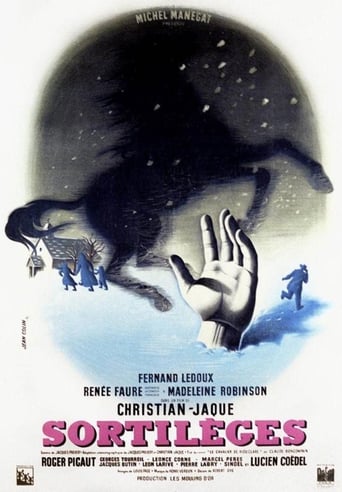

I didn't realize this job existed but Lucien Coëdel is the bellman. He rings the bell from a shack in the middle of nowhere in a snow covered zone in France which is prone to blizzards. His role is similar to that of a lighthouse keeper alerting passing strangers who may be in trouble to a safety zone. Only, he's not normal. A murder is committed outside his shack and whilst other villagers are accused the film follows a love triangle that seriously needs to be resolved.The film scores for being different as it is set in and around a snowy French village. Two women have a love rivalry that makes things interesting and the bellman is always a bit unpredictable. However, the film is a bit slow and I lost interest. There are no surprises here which is a shame and the outcome is fairly obvious and a bit cheesy.
... View MoreAfter watching the superb 1941 film Who Killed Santa Claus?,I decided to take a look at a DVD sellers page for other titles by co- director Christian-Jaque.Getting near the end of the first page,I spotted a film which sounded like a companion piece to Who Killed,that led to me getting ready to meet the Bellmen.The plot:Called "Bellmen" by everyone in reference to his job, Jean-Baptiste tries to pass the time by talking to fellow bellmen Fabret.As Fabret talks about his daughter Catherine,Jean-Baptiste spots a man riding by. Sneaking out,Jean-Baptiste grabs a stone and kills the man.Running out, Fabret discovers the dead body,and Jean-Baptiste pulling a bag of cash from the dead man's clothes.As the dead man's blacks horse disappears into the horizon, Jean-Baptiste and Fabret cut a deal.Returning to town for the first time in three days in order to care for his Catherine,Fabret finds himself unable to escape the black horse of death.View on the film:Returning to the small town setting just a year after France was liberated from Nazi rule,co-writer/(along with Jacques Prévert) director Christian-Jaque & cinematographer Louis Page bask the title in a chilling Gothic Film Noir atmosphere,where the horse of the apocalypse rides into town with death. Circling the village with snow covered stones and graceful tracking shots breathing in the rustic Horror Noir mood,Jaque and Page ring the bells with the Bellmen in gliding stylised shots,as razor sharp overlapping shots sink Jean-Baptiste and Pierre into a fiery pit of Film Noir hell.Bringing their adaptation of Claude Boncompain's novel out of the clouds,the screenplay by Jaque & Prévert blends rich Gothic Melodrama with horrific Film Noir doom.Injecting the superb dialogue with a sharp playfulness,the writers gradually entangle Catherine's romantic troubles with her dads fears of Baptiste's killing being dug out of the snow.Keeping Baptiste round the bell tower,the writers open up the in-fighting of the townspeople,whilst slowly spilling the dread from Baptiste and the horse of death over the village.Caked in a thick black beard, Fernand Ledoux gives a fantastic performance as Fabret,with Ledoux bringing a method to Fabret's madness,as the loss of his wife and illness of Catherine weigh down on his shoulders,as the snow covers Fabret's hands with dirty money.Casting a long shadow over the town, Lucien Coëdel gives a brittle performance as Baptiste,whose rugged shell Coëdel cracks to unveil a ruthlessly mischievous Film Noir loner,who along with tightly keeping Fabret on track,also has his eyes secretly set on Catherine.Running against the hard gazes of Baptiste and Fabret,the stunning Renée Faure (who made her debut as another Catherine in Who Killed Santa) gives an excellent performance as Catherine,thanks to Faure sparkling in her criss-cross romantic exchanges with cad Pierre (a great Roger Pigaut) and also displaying a real bite in Catherine's fight against rival lover Marthe, (a splendidly stern Madeleine Robinson)as the Bellmen bell tolls.
... View MoreA very dark and spellbinding film of jealousy and murder set in a little village lost in the French Alps. At first glance you could be forgiven for assuming that director Christian-Jacque (UN REVENANT) was revisiting L'ASSASSINAT DE PERE NOEL which he made for Continental three years earlier; remote setting and wintry landscapes, but actually there is much more to offer, not least Madeleine Robinsion who was one of the finest French actresses of her generation. With a top rate script by Jacques Prevert and camera work of stunning images: a dead body in the snow raising a hand, a black horse galloping mount less as if it were demanding justice for his murdered master and a rural fete complete with quaint musicians and their rustic instruments; The whole movie is a feast for the eyes. The soundtrack essentially consists of the old French folk song "Aux Marches du Palais" which is played throughout the film.
... View MoreAt first glance you could be forgiven for assuming that Christian Jacque was revisiting L'Assassinat de Pere Noel which he made for Continental three years earlier; remote setting, wintry landscapes, etc but actally there is much more on offer, not least Madeleine Robinsion who, as a previous poster has rightly said, was one of the finest French actresses of her generation; it was her misfortune to appear in films that were aimed at domestic rather than international markets so that unlike Danielle Darrieux, Edwige Feuilliere, Micheline Presle, Arletty, etc, all of whom were, of course, equally gifted but contrived to be seen and/or work outside France, Robinson remains one of the best-kept secrets in French cinema. A script by Jacques Prevert doesn't exactly impair a film either if anybody asks you and here he is right on top of his game; add some stunning images, a horse against the snow, etc, and we're talking another winner.
... View More